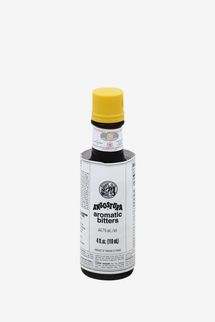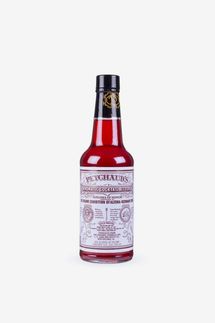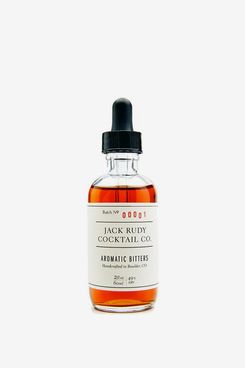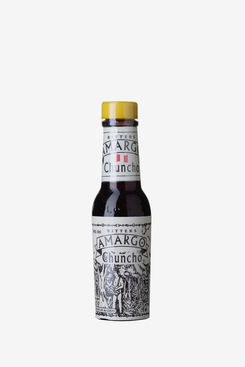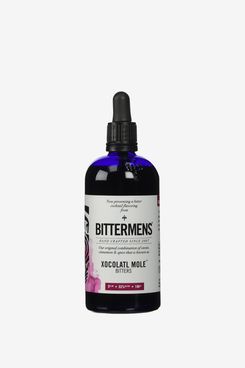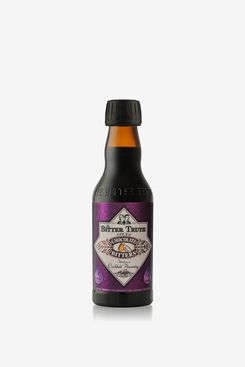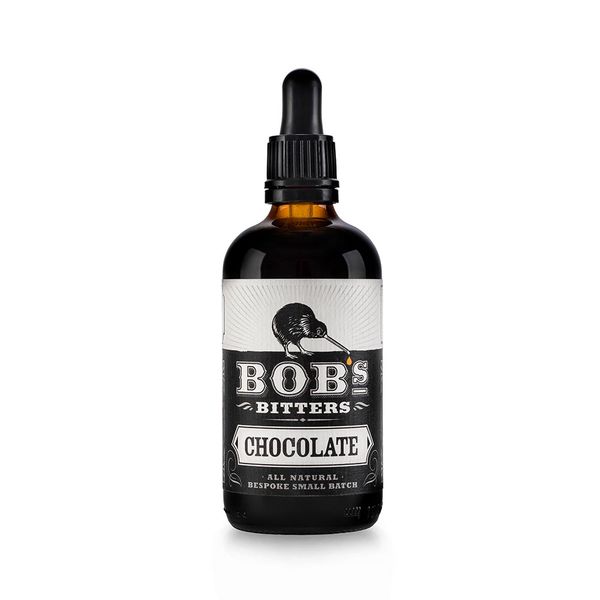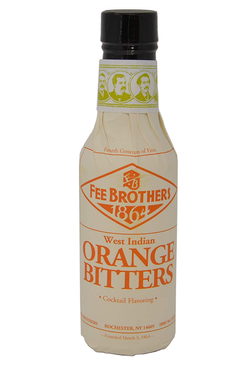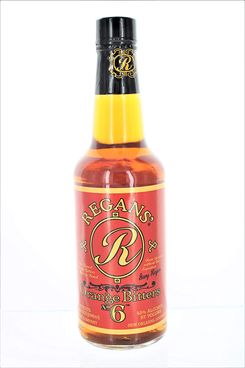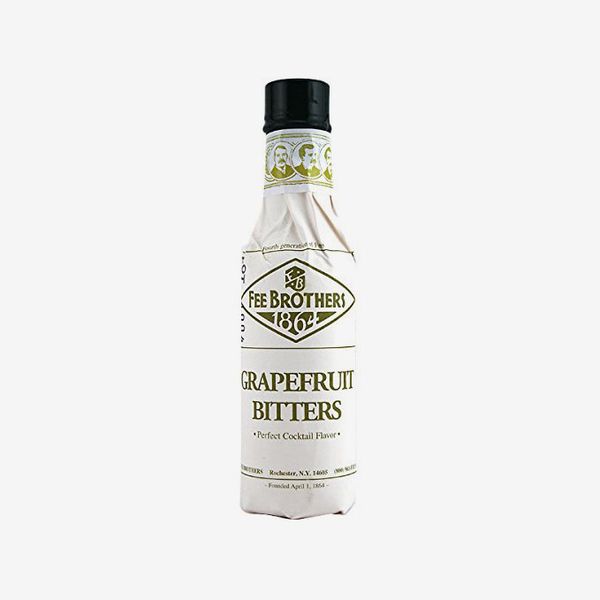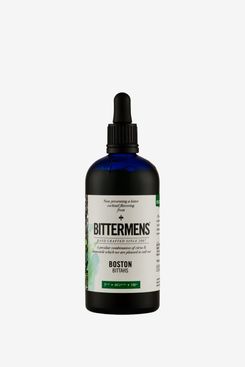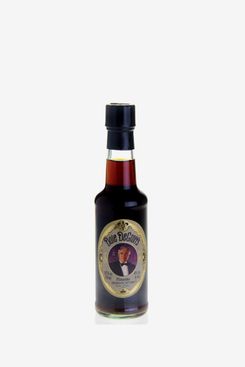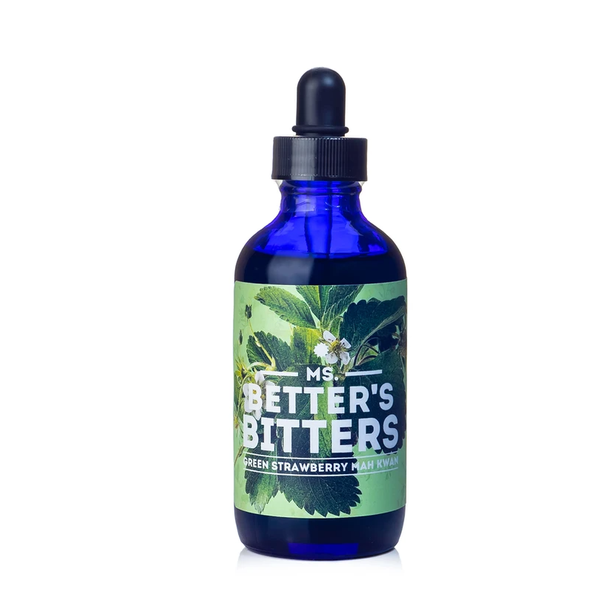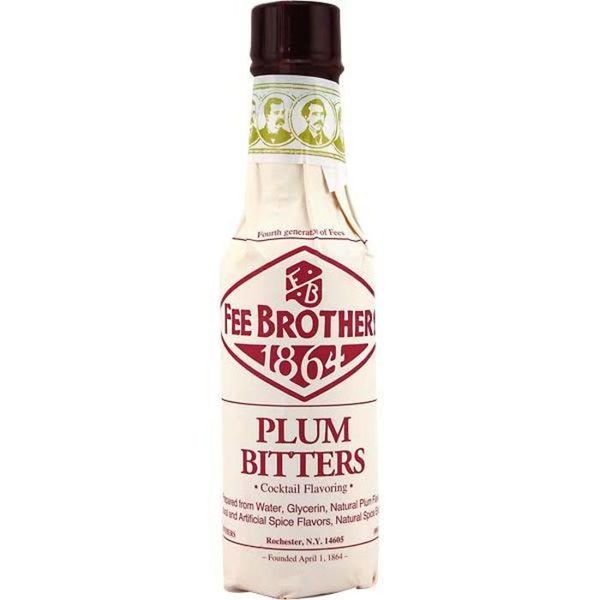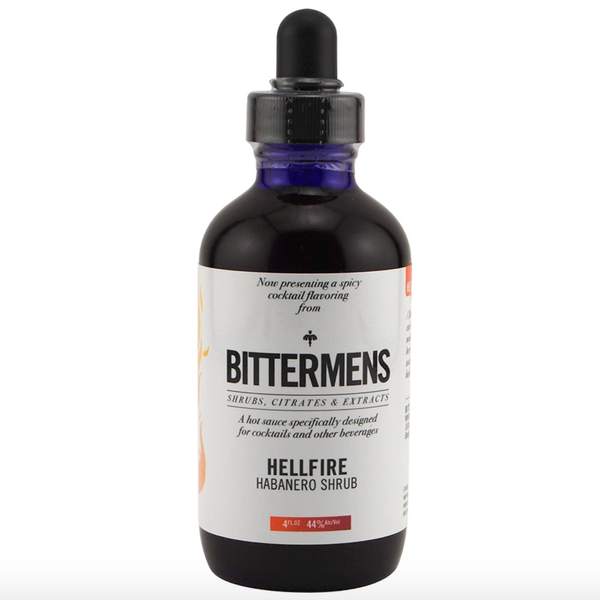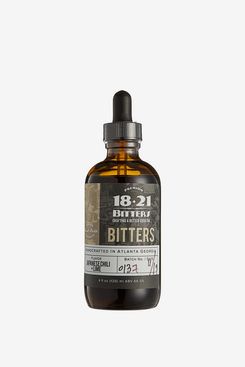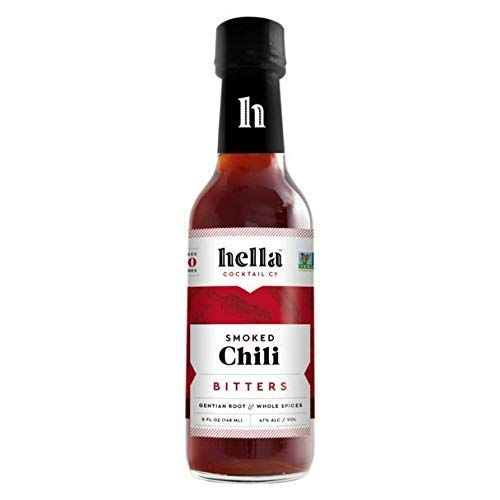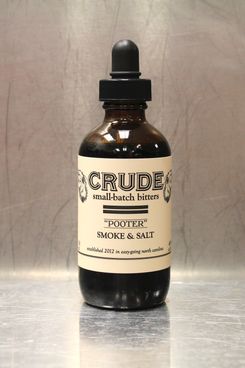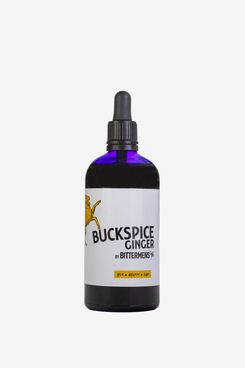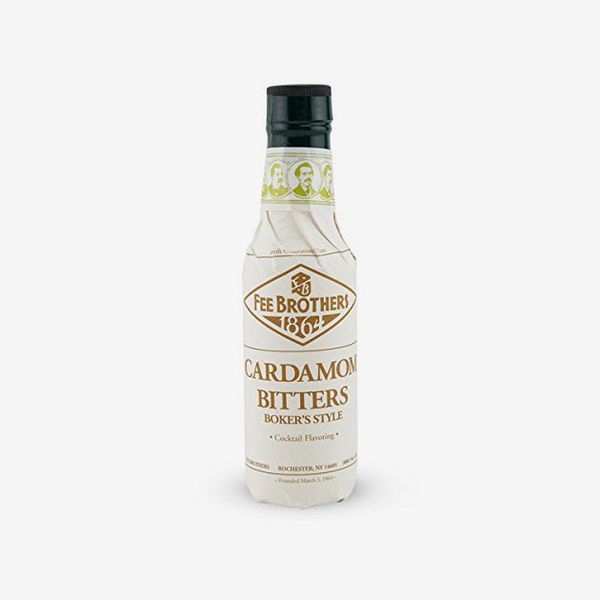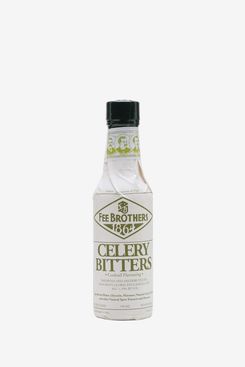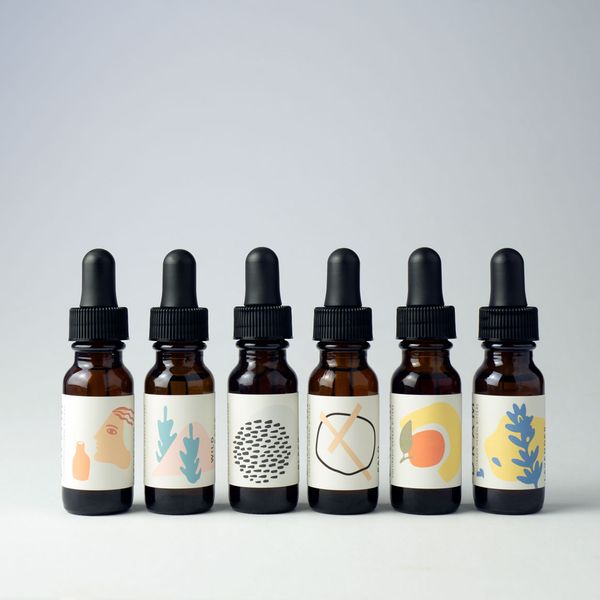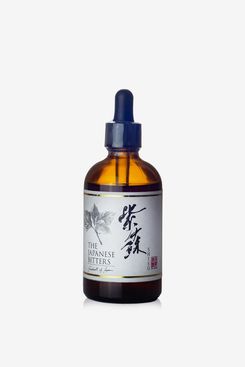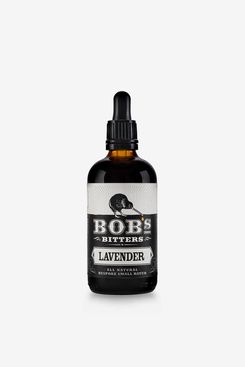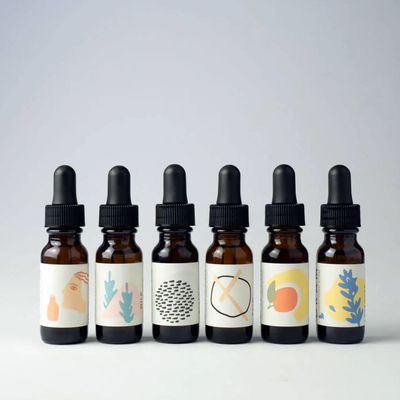
If you’re looking to up your cocktail-making at home — or need a way to make your mocktails a bit more exciting as we head into the back half of dry January — bitters are a simple way to add more depth of flavor to any drinks you make yourself. “They give you loads of flavor in very little liquid,” explains Nik Hannigan, the global brand educator for Fluère nonalcoholic spirits. “Bitters are the salt and pepper, the pinch of seasoning to your cocktail,” adds Lynette Marrero, a co-founder of the all-female, high-speed bartending competition Speed Rack, who works as the beverage director for New York City–based Llama Inn and Llama San. (As a way to support their employees during the ongoing pandemic, Llama Inn and Llama San have set up a staff fund here). To find the best bitters for a home bar, we spoke to Hannigan, Marrero, and 11 other bartenders about their favorites. The 25 bitters they recommend below include classic aromatic bitters, herbal blends, the Peruvian brand that is a must for pisco sours, and more. We’ve organized their recommendations by flavor profile and lead each category with the products that came most recommended.
Editor’s note: In addition to Llama Inn and Llama San, we’ve noted if other businesses mentioned in this story have set up initiatives to support them amid the coronavirus pandemic. If you want to support service-industry workers who have been impacted by the coronavirus, you can also donate to the Restaurant Workers’ Community Foundation, which has set up a COVID-19 Crisis Relief Fund, or One Fair Wage, which has set up an Emergency Coronavirus Tipped and Service Worker Support Fund. Or, if you prefer to donate to restaurants directly, our friends over at Grub Street are keeping a running list of ones with individual funds here.
Best aromatic bitters
Aromatic bitters, according to our experts, are the most common and classic bitters you can get. They tend to have notes of spices and bittering herbs and are traditionally added to cocktails like old-fashioneds, pisco sours, and Sazeracs.
Jarek Mountain, a co-owner and the beverage director of Boston’s Yellow Door Taqueria, says, “When it comes to bitters, every mixologist should have two staples: Angostura and Peychaud’s.” Julia Momose, partner and creative director at Chicago-based cocktail bar Kumiko, agrees: “Classic aromatic bitters like Angostura and Peychaud’s are staples.” According to Pete Canny, a co-owner of the East Village bars and restaurants The Wild Son, Goodnight Sonny, and The Wayland, Angostura bitters are ideal for making Manhattans or Champagne cocktails. (“If I was caught on a desert island and only allowed one, that would be it,” he says of Angostura.) Peychaud’s bitters, meanwhile, have a lower ABV, a slightly fruitier, sweeter flavor, and are ideal for cocktails like Sazeracs.
Johnny Caldwell and Taneka Reaves, a duo also known as the Cocktail Bandits, are fans of Jack Rudy’s aromatic bitters. “Aromatic bitters add a little something extra to just about everything,” they say. As for how the two use their preferred aromatic bitters: “Try them in an old-fashioned, a glass of ginger ale, or even a bowl of ice cream.”
As Leyenda owner Ivy Mix, a co-founder of Speed Rack and the author of Spirits of Latin America, explains, “Pisco sours need a little drop of bitters on top to make them just so.” She says that bartenders generally use Angostura to top the drink, but that in Peru you would traditionally use Amargo Chuncho, aromatic bitters that she describes as “dark and inky with lots of bitterness from quinoa leaves.”
Best chocolate bitters
The pros say chocolate bitters tend to work best in cocktails made with dark liquors like rum and can have notes of cacao, chilis, and sometimes coffee.
Four of our experts (we’re counting the two Cocktail Bandits as one) recommend Bittermens Xocolatl Mole Bitters, including Mix, who calls it “indispensable and very versatile.” Mountain describes the flavor as a “combination of cacao, cinnamon, and spice that can bring out a richness in dark-liquor cocktails.” The Cocktail Bandits agree and add that “the nutty and rich dark flavors of this chocolate bitter pair beautifully with spirit-forward cocktails.” While they’re a bit pricey, Mountain notes that “the quality of Bittermens’ ingredients is truly unmatched and can enhance any flavor profile, even for the most discerning cocktail aficionados.” Milos Kostadinovic, the beverage director for the Boucherie restaurants, explains that these bitters’ high quality is due in part to the brand’s use organic products,” adding that he likes to add them to dark rum or tequila drinks.
The Bitter Truth’s chocolate bitters are a favorite of Krissy Harris, the beverage director and managing partner of New York City–based Jungle Bird. She says that they’re a little less complex, noting that the “simple bitter-chocolate and cinnamon notes add just the right amount of depth” if you want to try a twist on a traditional old-fashioned. “They’re my favorite way to add complexity to that pretty straightforward classic,” she adds.
Hannigan says BOB’s Chocolate Bitters have notes of mocha and espresso and “will add fantastic layers of flavor to whatever you are making.” Only a few dashes will give a drink “a lovely bitter, dark-chocolate depth,” he says.
Best citrus bitters
Citrus bitters distinguish themselves from other fruity bitters (which we’ll get to a bit later) by their bright flavor profiles, which the experts say work well in cocktails ranging from old-fashioneds to margaritas.
Harris calls these orange bitters “a go-to and a must-have for any bar” because of their versatility. “I use them in cocktails with sparkling wine as much as I use them in gin and whiskey cocktails,” she says, adding that the “clean, bitter-orange flavor adds just the right amount of citrusy brightness without adding other layers of flavor.”
According to Harris, the difference between Fee Brothers orange bitters and Regan’s orange bitters is that Regan’s has other layers of flavor beyond orange. Some folks like Canny prefer that, though; he says Regan’s is what he uses to zhuzh up old-fashioneds. His other tip for these bitters: Add three to five dashes to a margarita if you happen to be out of Cointreau (or don’t want to buy a bottle in the first place). “I actually prefer it because it adds that orange profile without the sugar,” Canny says.
Bartender A-K Hada notes that Fee Brothers “has a great variety of flavors,” pointing to the brand’s grapefruit bitters as a particularly good option for those who want to get a bit more creative when building a citrusy cocktail.
According to Kostadinovic, these bitters blend citrus notes with chamomile to create a “fresh and floral” flavor that pairs well with chartreuse and rhum agricole.
Best fruity bitters
In addition to citrus, the pros told us about other fruit-forward bitters with flavors that they say work well in rum cocktails, Prosecco-based drinks, or even martinis.
“With hints of allspice and berries, these bitters are perfect for winter,” says Canny. He likes to use them to zhuzh up rum cocktails or to “add more flavor to leftover holiday bubbles like Prosecco or sparkling wine.”
For a taste of summer (now or when the weather warms up), Hannigan recommends these strawberry bitters. He’s a fan of adding them to martini-style cocktails to give them a fresher taste.
Kostadinovic keeps Fee Brothers’ Plum Bitters behind the bar at Boucherie. He says they pair very well with bourbon and tequila (and lavender, if you’re into it), adding that these bitters are what he’ll reach for to give the standard old-fashioned a bit of a fruity kick.
Best spicy and smoky bitters
If you want to add a touch of smoke, a hint of heat, or some warming spice to more complex cocktails, the experts say a bit these bitters, which can have notes of smoked chili and cardamom, will do the trick.
Bittermens Hellfire Habanero is technically a cross between a shrub and a bitter, but two of our experts say it can’t be beat for those who prefer a spicy cocktail now and then. “If you’re looking to bring the heat, the Hellfire bitters will not disappoint,” promises Mountain. But “they are fiery,” warns Marrero, who notes you can usually substitute these bitters for recipes that call for spicy liqueurs.
Marrero is also a fan of 18.21’s Japanese Chili and Lime Bitters, which she says have notes of spice and citrus. Again, she warns to “be careful: They are so delicious and nuanced, but the spice really comes in at the end.”
For spiciness with a hint of smoke, Marrero loves Hella Cocktail Co.’s Smoked Chili Bitters, which have a smoky ancho flavor that she promises is strong enough to taste, but subtle enough not to “overpower everything else.”
Harris likes to add these smoky, salty bitters to whiskey drinks, including old-fashioneds. “I wanted to make a smoky and salty old-fashioned but couldn’t find anything on the market, so I made my own using black cardamom pods, black tea, sea salt, and the classic bittering herbs,” she explains. Then she found these bitters, which she says are the next-best thing to her recipe. “The smoke and salt are powerful enough to be noticed but subtle enough to not take over,” she promises.
For a hit of warm spice without much heat, Mountain recommends these ginger bitters that he calls “my go-to when I am looking for a cocktail with a little bite.” Adds Mountain: “They’re a game-changer for highball-style cocktails.”
And for a warming spice without any heat, Bryan Dayton, the founder and beverage director of Colorado-based Half Eaten Cookie Hospitality, suggests the cardamom bitters from Fee Brothers. Just a few dashes will add “a ton of flavor and depth to a cocktail,” according to him.
Best herbal bitters
With flavors from lavender to sage to mint, herbal bitters run the gamut, and the experts say you can add them to just about any cocktail, from martinis to old-fashioneds to Manhattans to twists on a Tom Collins.
According to Caldwell and Reaves, “If you love a good Bloody Mary, then you will love celery bitters.” The duo says these are a hallmark of “herbaceous cocktails and add an element of freshness to a drink.”
Dram Apothecary is a Colorado-based company that specializes in herbal bitters and is a favorite of Sam Thonis, a co-owner of alcohol-free bar Getaway in Greenpoint. (To support its business due to the ongoing pandemic, Getaway is selling gift cards you can redeem when it reopens; you can also donate to its staff fund here). This set comes with mini bottles of its entire bitters line, including palo santo, citrus, lavender lemon, wild mountain sage, their “black” blend (which contains notes of black cardamom and black tea), and their “hair of the dog” blend (which includes notes of ginger, fennel, cinnamon). Mix is another fan of the brand’s bitters, especially its palo santo blend, which she uses to infuse everything from martinis to old-fashioneds with an incense-like flavor.
Momose told us about these shiso bitters, which she says says “carry a deep and profound bitterness and the essence of an ingredient that is not so easy to tame into liquid form.” Shiso is a Japanese herb that “bears the freshness of mint and tangerine zest, with the warmth of baking spices like Ceylon cinnamon, star anise, and pimento,” she explains. While the bitters are a bit pricey, Momose explains that it can sometimes be difficult to find shiso in the States. As for how to use these, she recommends adding them to Tom Collins variations, Manhattans, or old-fashioneds.
For gin lovers or folks with alcohol-free bars, Hannigan suggests BOB’s lavender bitters because they “really accentuate the floral elements” of botanical spirits, according to him. “You could almost wear this stuff as a perfume but trust me: It goes great in a gin and tonic.”
The Strategist is designed to surface the most useful, expert recommendations for things to buy across the vast e-commerce landscape. Some of our latest conquests include the best acne treatments, rolling luggage, pillows for side sleepers, natural anxiety remedies, and bath towels. We update links when possible, but note that deals can expire and all prices are subject to change.

